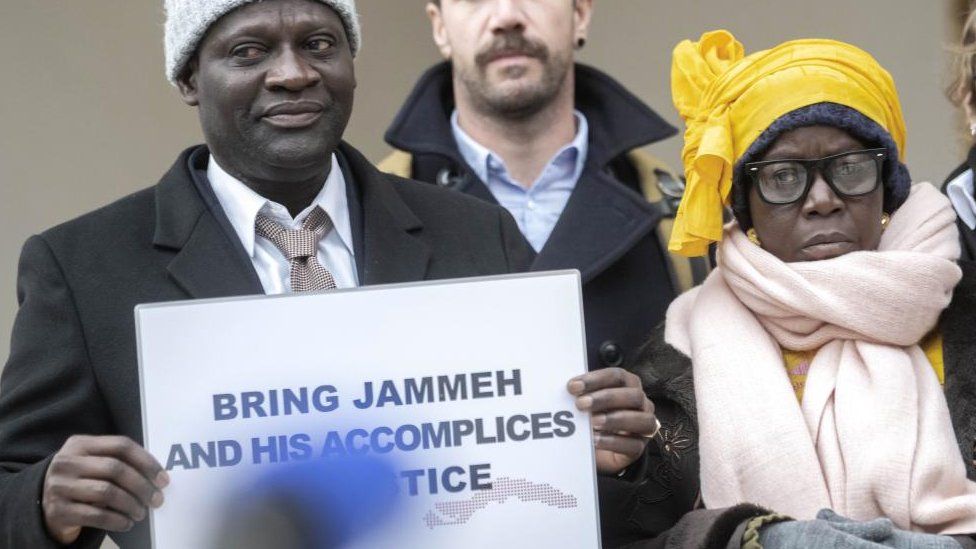-

-
-
Loading

Loading

A former Gambian interior minister, Ousman Sonko, will stand trial in Switzerland for crimes against humanity. Sonko fled to Switzerland in 2016, just before Gambian President Yahya Jammeh, who was accused of a repressive regime, lost power. Non-governmental organizations presented evidence linking Sonko to human rights violations, leading to his arrest. However, Sonko's lawyer claims that he is not responsible for these crimes, asserting that The Gambia's National Intelligence Agency was behind them. Switzerland is trying the case using universal jurisdiction, which permits countries to prosecute individuals on their soil for crimes committed elsewhere. Human rights groups view this trial as a warning to repressive governments around the world. The charge sheet against Sonko includes accusations of killings, torture, and rape against political opponents, which may constitute crimes against humanity under Swiss law. Swiss investigators interviewed numerous victims and witnesses in The Gambia, with nine expected to testify in court. Sonko is the highest-ranking government official to be prosecuted under universal jurisdiction in Europe. During Jammeh's presidency from 1996 to 2016, The Gambia experienced widespread human rights abuses. Sonko, as interior minister, was in charge of the security services, including a paramilitary group called "the Junglers." Sonko sought asylum in Switzerland, but was arrested after Trial International, an NGO, provided details of his alleged involvement in abuses. This case is significant as it is the highest-ranking former government official to be tried under universal jurisdiction and only the second such case in Switzerland. Other countries are also bringing cases against members of Jammeh's regime. The Gambia has established its own transitional justice process to address the abuses from Jammeh's rule, but progress has been slow. Despite the challenges, testifying in court provides a means for healing for the plaintiffs, and a guilty verdict would bring them the answers they have sought for years.